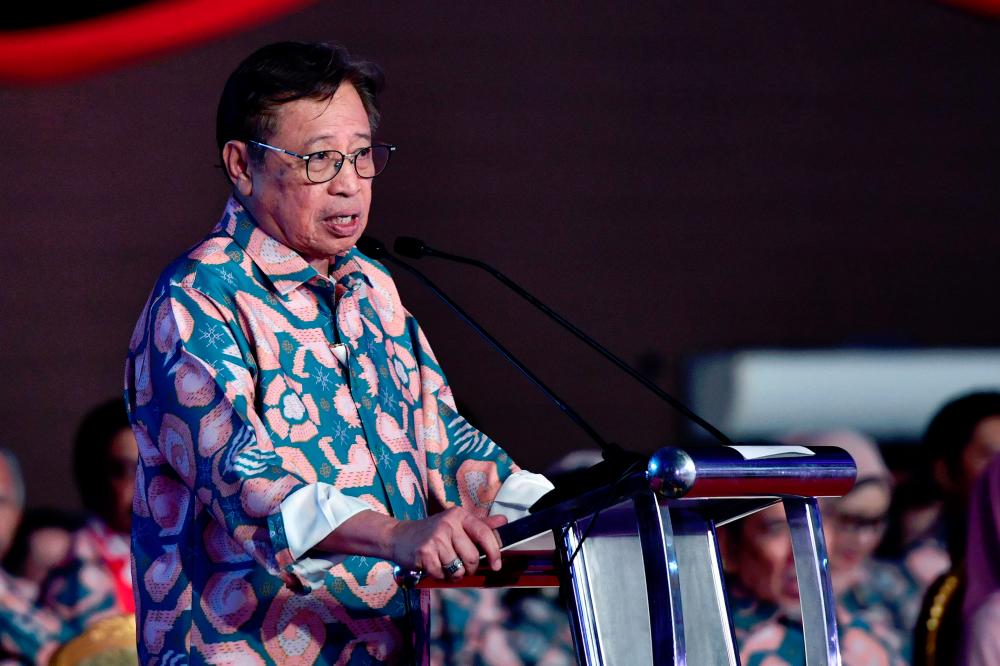KOTA SAMARAHAN: The Sarawak government is requesting the Federal Government to return to it the authority to appoint members of the Board of Directors (AJP) of the State Farmers’ Association (PPN) and Area Farmers’ Associations (PPK) in the state.
Sarawak Premier Tan Sri Abang Johari Tun Openg said that, aside from fulfilling the requirements of the Malaysia Agreement 1963 (MA63), granting the power to appoint them to the state government would help expedite the development of the agricultural sector in Sarawak.
Speaking at the inauguration ceremony of the Sarawak PPN Building here today, he noted that the Federal Government has already delegated the authority to the state government to appoint the board of directors for the Sarawak Fishermen’s Association.
“If the fishermen’s association (state) has been given the authority, then grant the same powers to the Farmers’ Associations (State and Areas),” he said.
He added that Sarawak Minister of Food Industry, Commodities, and Regional Development (MFICORD), Datuk Seri Dr Stephen Rundi, will discuss the matter with Sarawak’s Attorney-General, Datuk Saferi Ali, to further detail the request before presenting it to the Federal Government.
At the same event, Sarawak PPN Chairman, Datuk Dr Abdul Rahman Ismail said that previously, Sarawak’s agriculture minister had the authority to appoint AJP members for PPN and PPK.
However, he explained that this authority was revoked in 2018 and transferred to the Malaysian Agriculture Minister, despite agriculture being under the State List in the Federal Constitution.
“In the spirit of the Malaysia Agreement 1963 and the Unity Government, the power to appoint AJP members should be returned to the MFICORD Minister so that PPN and PPK administration in Sarawak can be aligned with the policies and direction of the Sarawak government,” he said.
He further noted that the transfer of this power would help realise Sarawak’s vision to become a net exporter of food-based products and raise farming family incomes to at least RM6,000 per month by 2030.









